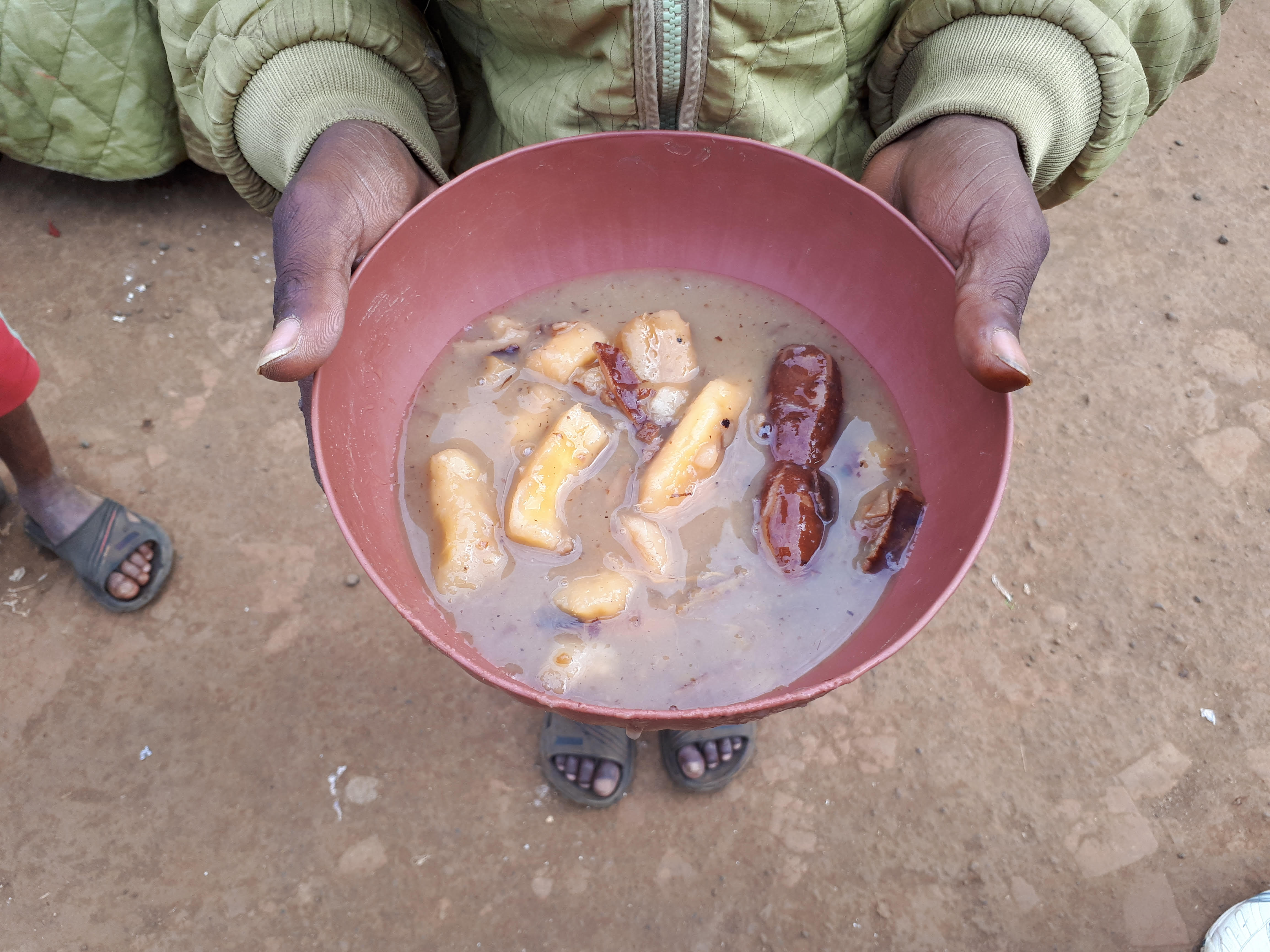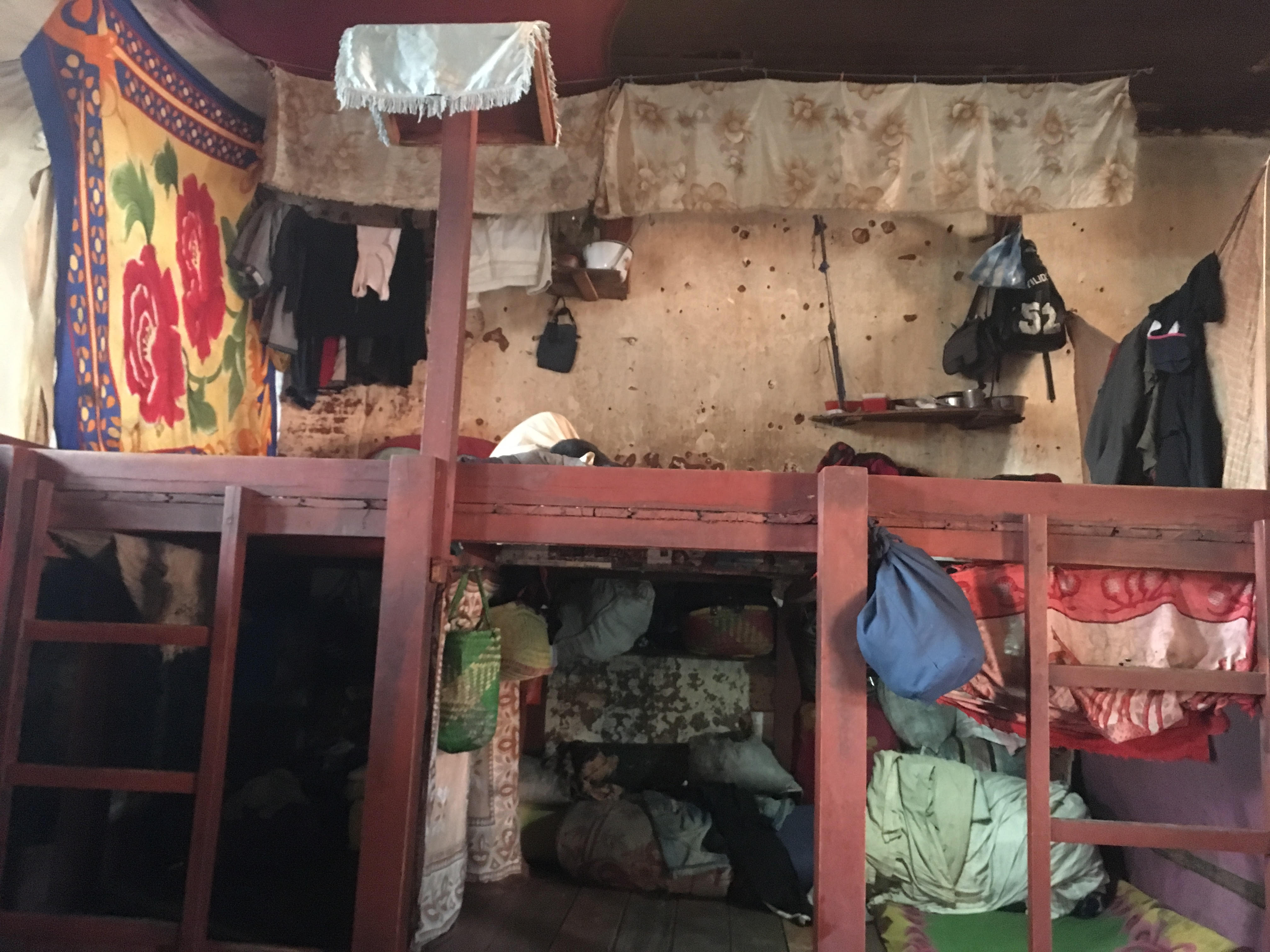Dubious victory: Sudan's President Omar al-Bashir reportedly took 94.5% of all votes cast in the April elections. The opposition parties boycotted the ?elections.
Today, Wednesday April 25, is the Africa Pretrial Detention Day. The day is dedicated to raising awareness about the use of prolonged pretrial detention across the continent. Evidence shows that this practice affects every part of the justice system everywhere. But at a personal level, pre-trial detention clearly violates the rights of detainees, and has been found to cause untold grief and hardship to the families and loved ones of those held behind bars without even having been tried, let alone found guilty of any crime.
It’s so easy to overlook this issue, but after having seen first-hand just the abuses involved in pretrial detention – especially in a context of poverty – and how it affects the people caught up in this cruel system, I want to explain what it really means for those affected.
My initial work for Amnesty International in Madagascar had focused on Clovis Razafimalala, a gentle family man, who is also a passionate environmental defender who had been persecuted for his peaceful work in protecting country’s endangered rosewood forests. He was accused of organising a protest that turned violent, although he has consistently said he had nothing to do with it, and did not even attend it. He was held in prison for ten months as he waited for his trial, leaving his wife and two baby girls without a father or an income. As a prisoner of conscience, he should not have spent a single day behind bars. Clovis was later released, but he was found guilty and so was handed a 5-year suspended sentence. Through his case, I came across similar cases of pretrial detention, where some of the pretrial detainees have become used to living in jail.
It soon became clear to me that in Madagascar, anybody could spend really long periods of time in pretrial detention, often without any serious evidence, to await trials that could take years to materialise. In some cases, individuals are released after years of pretrial detention without ever even going to trial.
As I researched further, I came across some disturbing statistics. Currently, prisons in Madagascar hold more untried prisoners than actual convicts. The excessive use of pretrial detention, and the delays in prisoners passing through the justice system, leads to dangerous and damaging overcrowding. Currently, more than 10 000 people are held in pre-trial detention in Madagascar, and the prisons hold twice more people than what their capacity can handle.
The first prison I visited in person was Antanimora, the most populous jail in the country, in the capital, Antananarivo. The sense of overcrowding, and the lack of resources available to prisoners and staff is immediately apparent.
The prison is supposed to house 800 prisoners, but, when we visited, there were 3300 prisoners sharing the space. Over half of those were pretrial detainees. There is no separation between pretrial and convicted prisoners, in violation of international standards. Those accused of petty crimes such as cell phone theft spend their days and nights in the company of convicted murderers. In the men’s quarters, prisoners sleep in big, bare, dark and gloomy rooms. While some prisoners sleep on wooden or concrete planks, for others, the concrete floor is their only bed, which they share with rats and other vermin. There are a handful of barely functioning toilets and showers to service the entire prison.
The living space seems unsuitable for human habitation, but food, or the lack thereof, is the biggest concern for the people confined to these cells. Due to the limited resources allocated to the prison system in general across the country, detainees are fed only twice a day, with meals consisting mostly of cassava, which does not fulfil their nutritional needs.

(Amnesty International)
Prison guards showed empathy and concern for the prisoners themselves. As we were leaving, one prison director even called us back so he could show us how the prisoners are forced to sleep every night. Hundreds of men crammed into one room lying head to toe, with no room to move find a more comfortable position. These are the harsh conditions in which Malagasy pretrial detainees live in. Needless to add, it is equally wrong to hold convicted prisoners under such inhumane conditions.To quote world renowned fallen global apartheid activist, Nelson Mandela: “It is said that no one truly knows a nation until one has been inside its jails. A nation should not be judged by how it treats its highest citizens, but its lowest ones.”

(Amnesty International)
As we mark the Africa Pretrial Detention Day today, the Malagasy government must decongest its prisons by ensuring that its criminal justice system moves swiftly to resolve some of the cases that are overburdening prisons. It must also respect its own Constitution, which provides that people are sent to or kept in pretrial detention only if this is absolutely necessary. Conditions in jails must be urgently improved. By taking these measures, the authorities will be delivering justice to the families who are struggling as their loved ones spend months and years in these cells. Justice is not served by making people languish in jail without trying them.
Tamara Léger is Amnesty International’s Madagascar Adviser. Amnesty International will soon be releasing a report highlighting some of the cases that we saw on our various missions to the prisons.